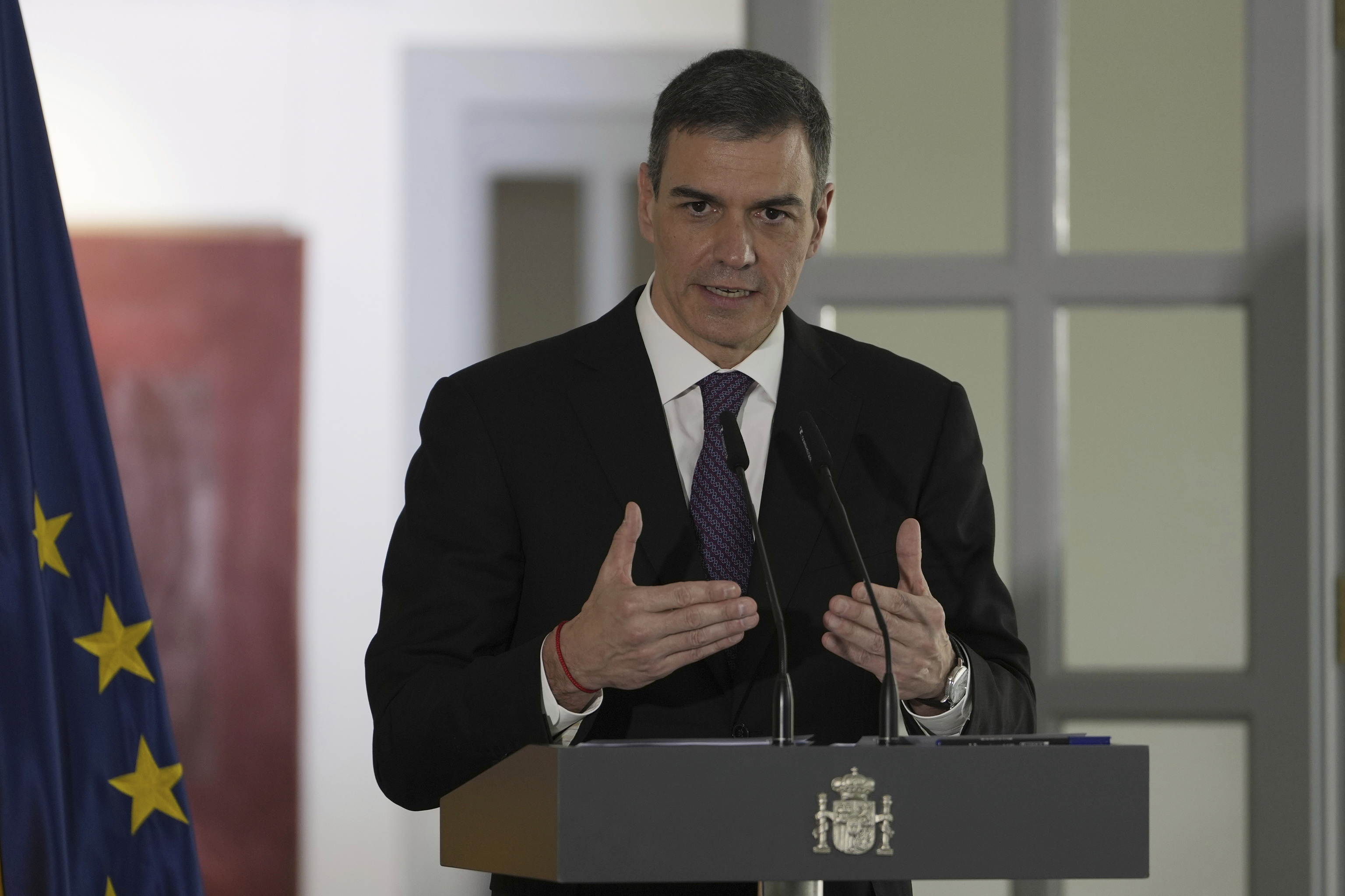The agreement between Pedro Sánchez and Mark Rutte for Spain to have its own defense spending path, which according to the Prime Minister will prevent the country from reaching, let alone surpass, 5% of GDP in military investment, threatens NATO unity. Because, as diplomatic sources explain, it is a pact "unfair to the rest of the countries" and also paves the way for other nations to similarly demand special treatment.
"Belgium, Italy, Canada, or Slovenia may now demand something similar," these same sources add, mentioning the countries that have shown the most reluctance in the past to accept the 3.5+1.5 model proposed by the NATO Secretary-General. They also emphasize that both the agreement and its presentation are entirely "political," allowing Sánchez to use it to strengthen internally.
The NATO itself maintains that the actual goal remains 5% of GDP. Spain will indeed have to increase spending to that level to meet all the required capabilities, while the Government insists that 2.1% will be sufficient. Additionally, the Government has secured a review of spending objectives in 2029. At that time, it will be assessed whether what is agreed upon this week in The Hague remains necessary. The deadline to develop all capabilities will also be extended to 10 years, that is, until 2035, instead of the initially proposed 2032 by Rutte.
All of this will now need to be ratified at the summit starting tomorrow, as diplomatic circles emphasize that the pact is between the Spanish Prime Minister and the NATO Secretary-General. Not with all members of the Alliance. It remains to be seen what the German Chancellor, Friedrich Merz, the Baltic and Nordic countries, and of course, the U.S. President, Donald Trump, who stated last week that 5% was non-negotiable for all Alliance members, will say. "Spain has always paid very little. They were either good negotiators or simply not doing the right thing. Spain must pay the same as everyone else," he affirmed on Friday.
This point has been reached after a process that was uncertain for the Government at the outset. When Sánchez stood firm against spending 5% of GDP on Defense, they did not know what scenario would unfold. They had considered all possibilities but not the path NATO would take. Rutte chose to negotiate, as this newspaper reported, and that was already a message to La Moncloa. Throughout the weekend, the Prime Minister himself engaged in conversations with various leaders, while his Chief of Staff, Diego Rubio, liaised with the NATO Secretary-General's office.
The agreement was finalized with Rutte's letter to Sánchez yesterday. NATO "will give Spain the flexibility to determine its own sovereign path to achieve Capability Targets and the annual resources needed as a percentage of GDP, and to present its own annual plans," as stated in the letter, accessed by EL MUNDO. The figure Sánchez stands by is 2.1% of GDP, "no more, no less," as he believes it is what is needed to meet the capabilities demanded by the Alliance, as conveyed by the Armed Forces technicians. In La Moncloa, they considered the 5% figure "arbitrary" -"Why not 7%, 9%?" they ironically questioned within the Government- and "unsupported."
Over the weekend, the Government conveyed that their intention was not to "block" the NATO summit, but they were going to be "firm" in rejecting reaching 5% of GDP in military spending. In a position of extreme weakness after a corruption scandal within the PSOE and the Government was exposed, the head of the Government chose this confrontation to firstly divert attention from that crisis and secondly to prevent his partners, very upset by the 'Cerdán report,' from having a new reason to end the legislature.
This pressure, combined with the risk of Sánchez's credibility being questioned again, prompted the Government to activate all diplomatic efforts. When a security and defense investment plan of 10.471 million was announced, Sánchez promised it would be done without touching "a cent of social spending." Having to spend 80 billion a year, as he has acknowledged, meant "breaking our word," in addition to having to cut social aid and raise taxes.
